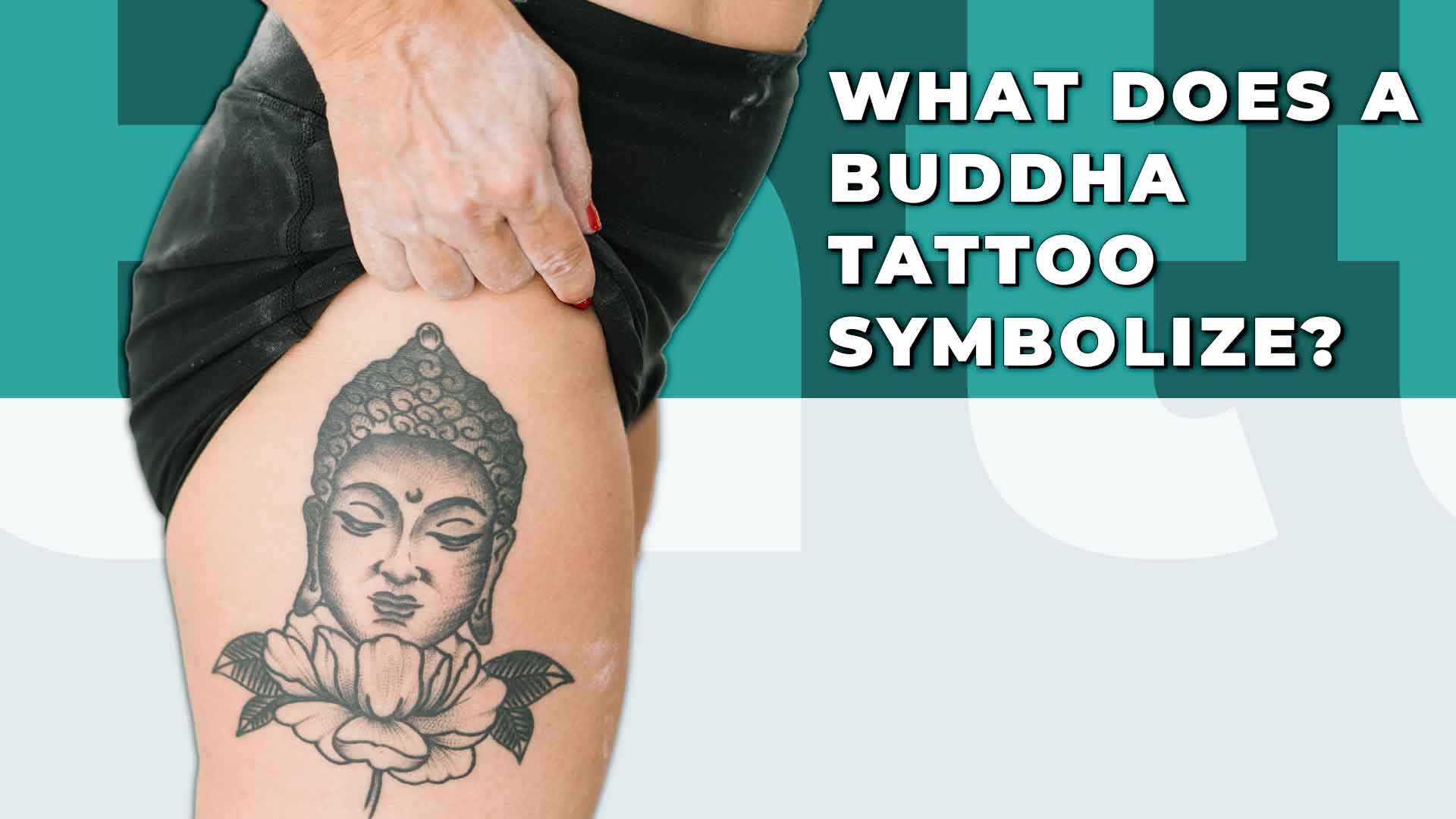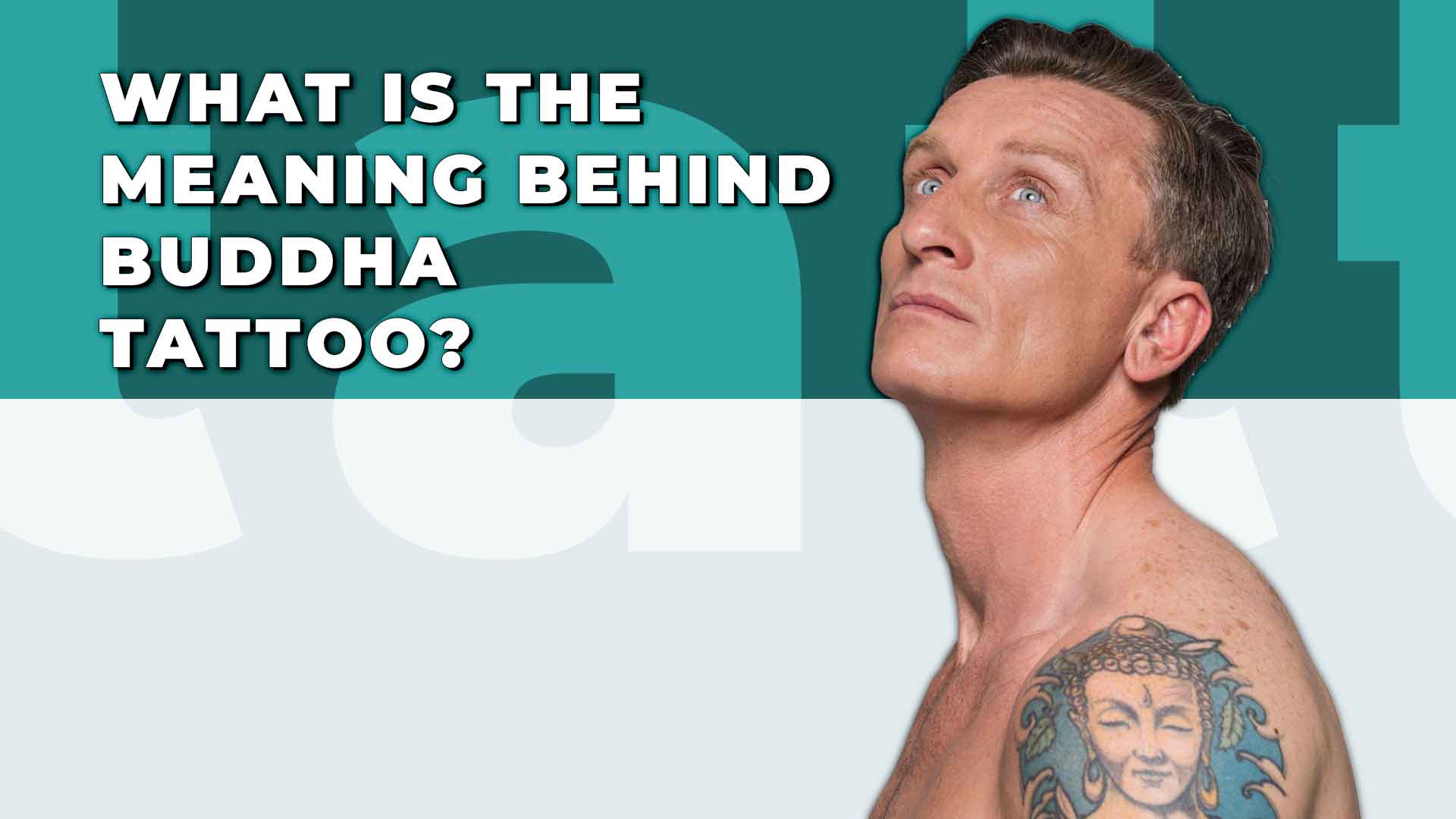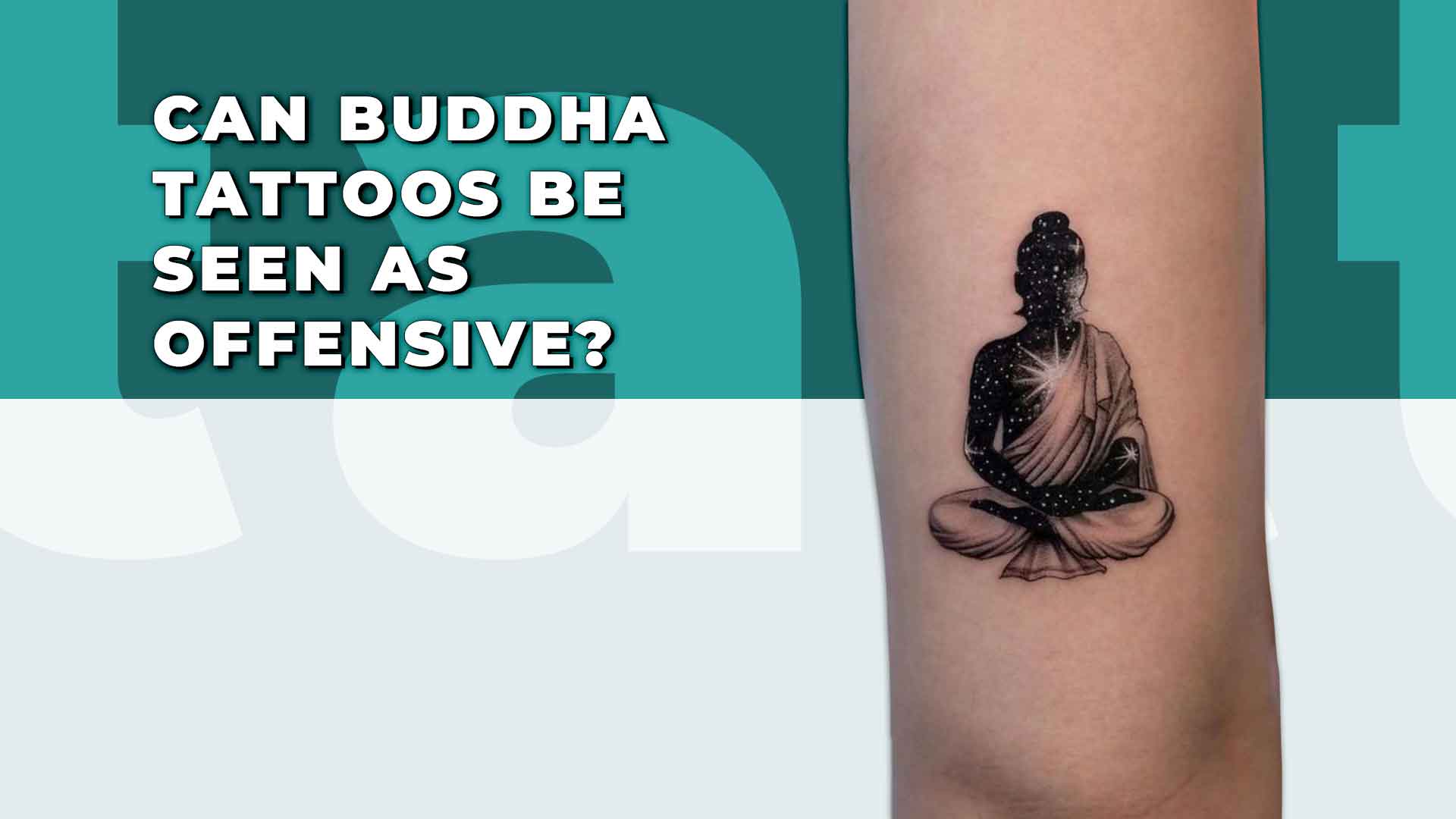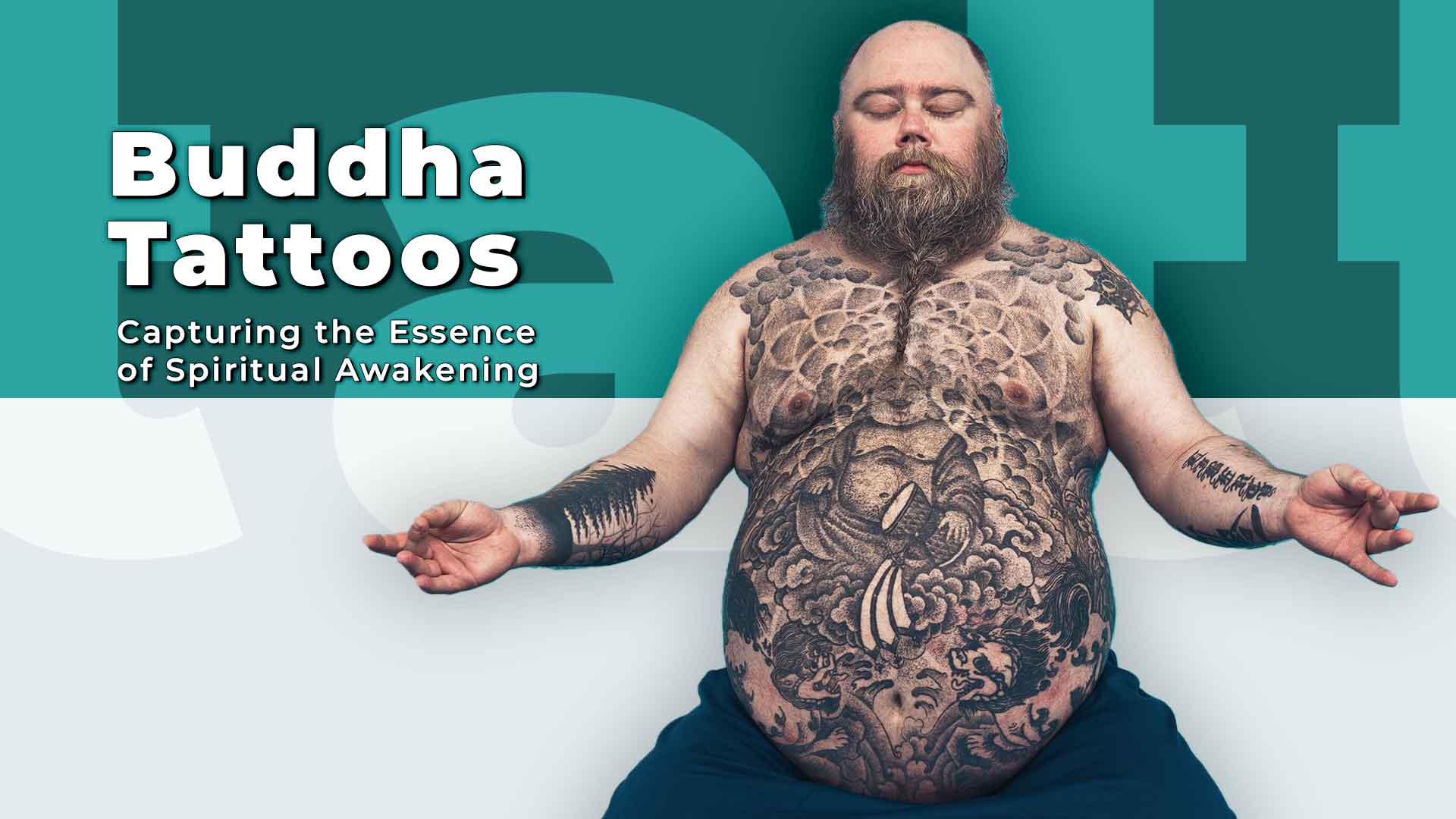Gautama Buddha has played a significant role in establishing Buddhism as a widely followed tradition, garnering immense popularity worldwide. In addition to its religious aspect, Buddha and Buddhism have emerged as highly sought-after themes in the art of tattooing. Buddha tattoos hold deep meaning for individuals, serving as symbolic tributes to Buddhism and the profound teachings of Buddha. They also serve as a means to pay homage to the principles and beliefs upheld by Buddhists.
People often express their devotion and reverence towards their religion by adorning themselves with symbols that embody their way of life. Various symbols exist to represent different religions and philosophies. When discussing Buddhism, many followers perceive it as more than just a religion; it is viewed as a way of life characterized by love, compassion, and beauty. Therefore, it comes as no surprise that some individuals choose to permanently honor and demonstrate their respect for Buddhism through tattoos.
The focal point of these Buddhist tattoos is often the representation of Buddha himself, who serves as a symbol encompassing all of Buddhism. Due to the diverse positions associated with Buddha, with each day of the week having a unique pose and some days having multiple poses, there is a wide range of variations in Buddha tattoos.
This article aims to delve into the meaning behind Buddha and the symbolism it holds. Additionally, it seeks to explore the significance of Buddha tattoos for those who choose to adorn their bodies with this powerful symbol. Given the creative freedom associated with Buddha tattoos, we will discuss the different artistic interpretations and portrayals of Buddha. By the end of this article, our goal is to provide you with a deeper understanding of the profound meaning behind Buddha tattoos.
What Does a Buddha Tattoo Symbolize?

The Buddha tattoo is a powerful symbol, representing enlightenment, wisdom, and serenity. It serves as a visual reminder to embrace compassion, mindfulness, and the pursuit of spiritual growth. The image of Buddha, often depicted in a meditative pose or with a serene smile, represents the ultimate state of enlightenment attained by Gautama Buddha. It acts as a constant source of inspiration for those seeking spiritual awakening and a reminder of the Buddhist teachings.
History Behind Buddha Tattoo
Buddhism, originating in ancient India, has spread across the world, influencing countless cultures and societies. As Buddhism traveled, so did depictions of the Buddha, leading to the integration of Buddhist imagery into various art forms, including tattoos. In countries like Thailand, Cambodia, and Sri Lanka, the Buddha tattoo has been prevalent for centuries, traditionally believed to bring protection, good fortune, and spiritual guidance.
What is the Meaning Behind Buddha Tattoo?

The Buddha tattoo carries different meanings and interpretations, often personalized by the wearer. Some choose to adorn their bodies with Buddha tattoos as a representation of their admiration for Buddhist philosophy, embracing its core principles of compassion, mindfulness, and detachment from material desires. Others see it as a reminder to strive for personal growth and seek enlightenment within themselves.
For many, the Buddha tattoo serves as a spiritual compass, a visual guide on the path toward inner peace and enlightenment. It acts as a constant reminder to live a mindful and compassionate life, focusing on the present moment and finding solace amidst the chaos of the world.
As tattoo artistry has evolved, so have the designs and styles of Buddha tattoos. Modern interpretations often feature intricate details, vibrant colors, and creative compositions. Some individuals opt for minimalist designs, capturing the essence of the Buddha through simple outlines and subtle shading, while others choose elaborate and realistic portraits to pay homage to the spiritual leader.
Why do People Get Buddha Tattoos?
The teachings of Buddha have a profound impact that transcends boundaries. Numerous individuals resonate with the life he lived and the lessons he imparted. Although Buddhism has evolved into various sects throughout the centuries, its core foundation remains steadfast: the Four Noble Truths.
These four truths acknowledge the undeniable existence of suffering while also offering a remedy for it—not only for oneself, but for all sentient beings. The key to liberation from inherent pain lies in the Noble Eightfold Path, a practice encompassing compassion, meditation, mindfulness, generosity, and other virtuous qualities that have a transformative and positive impact on the world.
In addition to Buddha’s invaluable guidance for living a more fulfilling life, he taught us about the concept of “Tathāgatagarbha”: the inherent Buddha nature present in all sentient beings. This means that enlightenment already resides within every individual; it simply needs to be discovered.
At its core, Buddhism is a beautifully inclusive philosophy. It is these teachings and more that have inspired countless individuals to embrace Buddha’s path or to symbolize their devotion through tattoos, whether it be a small Buddha tattoo or a depiction of a Buddha symbol. There are myriad ways to express one’s love for Buddhism, and tattoos can serve as a highly transformative form of expression when approached with sincerity and purity of heart.
Can Buddha Tattoos be seen as Offensive?

The presence of a Buddha tattoo can indeed be considered offensive, particularly in cultures where Buddhism holds a significant religious or ethical role. The teachings of Buddha, along with representations of him, are regarded as deeply sacred and divine. Therefore, they deserve utmost respect, as they are not intended to be used solely for decorative or superficial purposes.
Is It Considered Disrespectful to Have a Buddha Tattoo?
Certainly, having a Buddha tattoo can be viewed as disrespectful. Yoni Zilber, a tattoo artist specializing in Tibetan art, clarifies this perspective by stating, “Images of the Buddha and Tibetan mantras hold great sanctity and should be treated with reverence. It is customary to place pictures of the Buddha in the highest position within one’s home and handle them with respect. If you choose to have such an image on your body, especially in a lower area, it can be seen as highly disrespectful. These body parts come into contact with toilet seats or rest on sandy beaches, which are deemed inappropriate places for the presence of the Buddha.
Buddha Tattoo Ideas

Here are some Buddha tattoo ideas you might consider:
Serene Buddha Face: A peaceful and meditative depiction of Buddha’s face, focusing on his serene expression and closed eyes.
Lotus and Buddha: Incorporate the lotus flower, a symbol of purity and enlightenment, with a seated or standing Buddha figure.
Meditating Buddha: Capture the essence of meditation by showcasing Buddha in a meditative posture, often with crossed legs and hands resting on the lap.
Laughing Buddha: Also known as the “Budai” or “Hotei,” this jovial depiction of Buddha represents happiness, contentment, and good fortune.
Dharma Wheel: Depict the Dharma Wheel, a symbol representing the teachings of Buddha and the path to enlightenment.
Bodhi Tree: Illustrate the sacred Bodhi Tree under which Buddha attained enlightenment, often accompanied by other symbolic elements.
Buddha’s Hand Gestures: Highlight the hand gestures, or mudras, associated with Buddha, such as the “abhaya mudra” (fearlessness) or the “dhyana mudra” (meditation).
Buddha and Animals: Incorporate animals that hold symbolic significance in Buddhism, such as the elephant, lion, or peacock, alongside Buddha.
Mantra or Sanskrit Script: Feature a meaningful Buddhist mantra or a Sanskrit script that embodies Buddhist teachings.
Watercolor Buddha: Opt for a colorful and vibrant watercolor-style tattoo of Buddha, adding an artistic and contemporary touch.
Final Thoughts
The Buddha tattoo stands as a powerful symbol of spiritual enlightenment, wisdom, and inner peace. It serves as a timeless reminder to embrace the teachings of Buddhism and strive for personal growth and compassion in our daily lives. While the design and placement of a Buddha tattoo are personal choices, it is crucial to approach it with respect and understanding, recognizing the deep cultural and religious significance it holds for millions around the world. Ultimately, the Buddha tattoo can serve as a lifelong connection to the path of enlightenment and a source of inspiration on the journey toward self-discovery.

